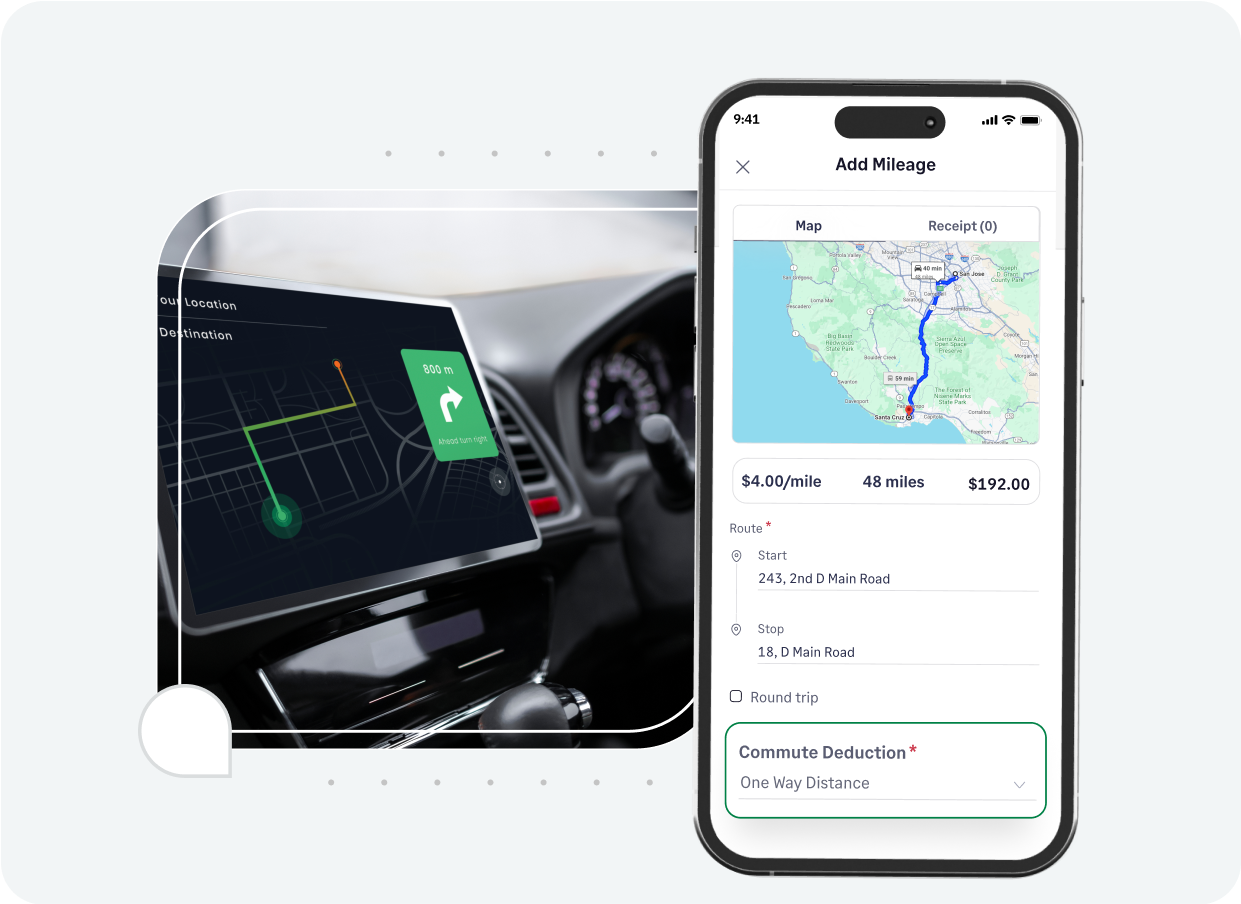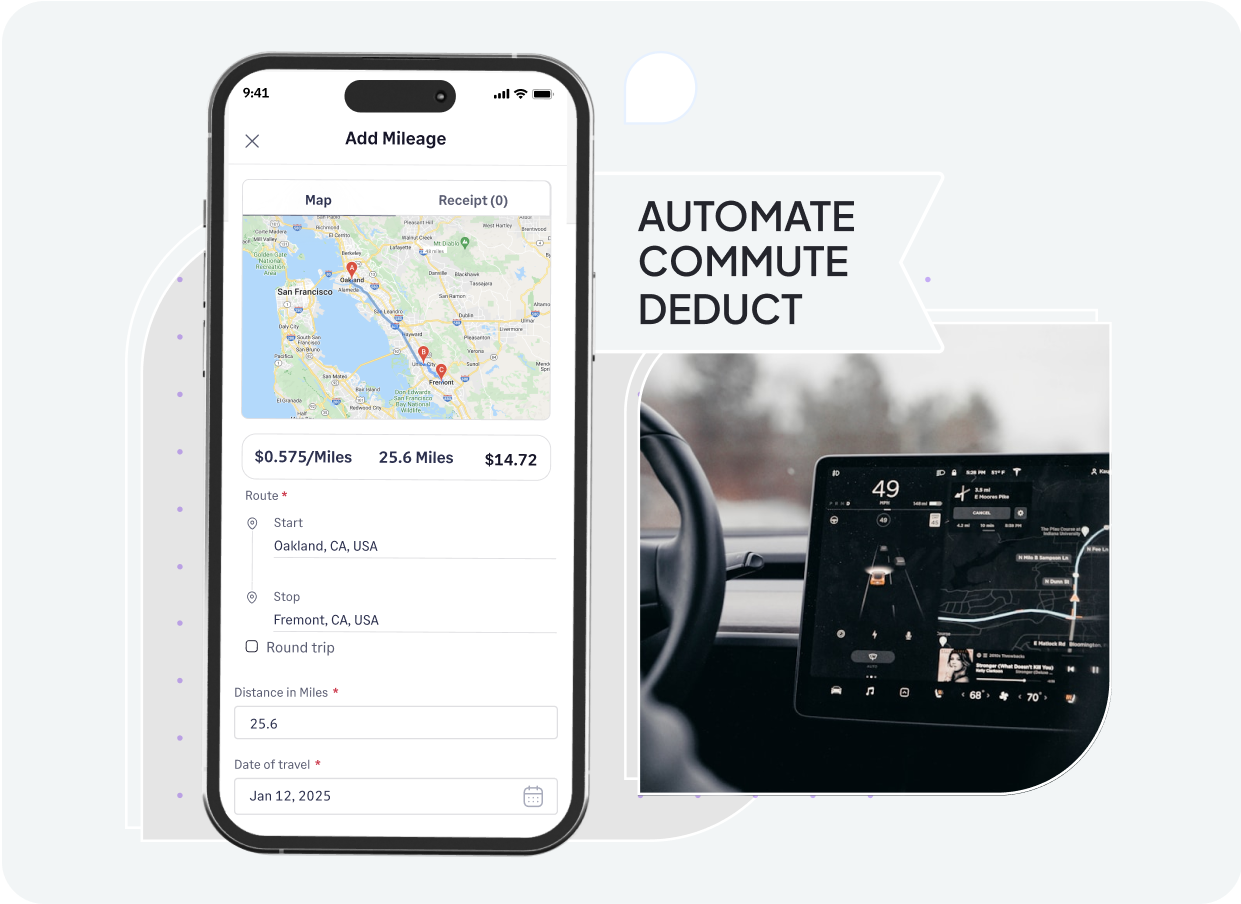In Vermont, where attention to fair labor practices is a hallmark, understanding mileage reimbursement is key for businesses.
While direct state mandates for private employers to reimburse at a specific rate are not broadly established, Vermont's strong minimum wage laws and public sector practices provide important context, often leading businesses to adopt federal standards.
The most common national benchmark for calculating these travel expenses is the standard mileage rate issued annually by the Internal Revenue Service (IRS). For the year 2025, the IRS has designated the standard rate for business use of a personal vehicle at 70 cents per mile. This is an increase from the 67 cents per mile rate that was effective for 2024.
Private sector employers in Vermont are not specifically compelled by a state statute to use this IRS rate for all general business-related travel. However, aligning with this federal standard is a prevalent practice due to its recognized advantages:
- It offers a clear, consistent, and widely understood basis for reimbursement calculations, simplifying internal policies.
- When reimbursements are handled through an accountable plan at or below the IRS rate, they are generally not considered taxable income for the employee and are deductible as a business expense for the employer.
As of January 1, 2025, the key IRS standard mileage rates are:
- 70 cents per mile for business use of a vehicle.
- 21 cents per mile for medical or moving purposes (note: the deduction for moving expenses is currently limited to active-duty members of the U.S. Armed Forces).
- 14 cents per mile driven in service of charitable organizations.
Other relevant rates in Vermont include:
- Vermont State Employee Rate: The State of Vermont typically aligns its mileage reimbursement rate for state employees using personal vehicles for official state business with the current IRS standard business rate. Therefore, for 2025, this primary rate is 70 cents per mile (it was 67 cents per mile in 2024). A lower rate (21 cents per mile in 2024) applies if a state vehicle is available but an employee opts for their POV.
- Workers' Compensation Medical Travel: Injured employees in Vermont are entitled to reimbursement for necessary travel expenses to obtain medical services for work-related injuries, as per Vermont's Workers' Compensation Rules (Rule 10.0200). This rate is customarily aligned with the rate allowed for state employees, meaning it would be 70 cents per mile for 2025.
For historical context, here are the IRS standard business mileage rates from recent years:
Vermont Mileage Reimbursement Calculator
Efficiently calculate your potential mileage reimbursement with our Vermont Mileage Reimbursement Calculator.
How to Use the Calculator:
- Select the correct tax year: Choose the year for your calculation (e.g., 2025, 2024), as IRS rates are updated annually.
- Input your business miles: Enter the total miles driven for business purposes using your personal vehicle.
- Calculate your reimbursement: The calculator will apply the official IRS standard mileage rate for the chosen year to provide your estimated reimbursement.
This tool offers a straightforward estimate based on federal standards, beneficial for managing travel expenses in Vermont.
Calculate
Results
Some Important Vermont Mileage Reimbursement Laws
While Vermont does not have a specific statute requiring all private employers to reimburse mileage for general business use at a set rate, several state laws and public sector practices influence how these expenses are typically handled:
1. Vermont Minimum Wage Law
Vermont's minimum wage is $14.01 per hour as of January 1, 2025, and is subject to annual adjustments based on the CPI. This is a crucial consideration.
Employers must ensure that any unreimbursed work-related expenses, such as mileage, do not effectively reduce an employee's pay below this state minimum for the hours worked.
The tipped minimum wage is $7.01 per hour, provided the employee's total earnings (wages plus tips) meet the standard minimum wage.
2. Workers' Compensation (Workers' Compensation Rule 10.0200)
State rules require that employees injured on the job be reimbursed for necessary travel to obtain authorized medical services. The mileage rate for this travel is typically aligned with the state employee rate (70 cents per mile for 2025).
3. Absence of General Private Employer Reimbursement Mandate on Rate
Beyond ensuring minimum wage compliance and workers' compensation obligations, Vermont law does not generally compel private employers to reimburse for mileage at a particular rate. Therefore, company policy often dictates these practices.
4. State Employee Travel Regulations
The State of Vermont has established policies for reimbursing its own employees for official travel in personal vehicles, with the primary rate aligning with the IRS standard. This sets a strong local example for what is considered a fair rate.
Vermont Mileage Reimbursement Law vs. Federal Law
In Vermont, the legal framework surrounding mileage reimbursement is characterized by strong state-level wage protections that often exceed federal minimums, with federal IRS rates serving as a widely adopted practical benchmark for reimbursement amounts.
Fair Labor Standards Act (FLSA)
The FLSA is the principal federal law that sets the national minimum wage (currently $7.25 per hour).
A key implication for mileage is that an employee's earnings must not effectively drop below this federal minimum due to unreimbursed, employer-benefiting business expenses.
If driving costs for work were to push an employee's net pay below this federal floor, the employer would be required to compensate for the shortfall.
Vermont's State Laws
Vermont's own statutes and regulations establish more stringent or specific standards in several key areas:
- The state's minimum wage ($14.01 per hour in 2025) is significantly higher than the federal rate. Consequently, Vermont employers must primarily ensure that any unreimbursed mileage or other business expenses do not violate this higher state minimum wage.
- Vermont's regulations explicitly provide for mileage reimbursement for workers' compensation-related medical travel, and this rate, along with the rate for state employee travel, generally follows the IRS standard. This widespread adoption of the IRS rate within state mechanisms reinforces its standing as a reasonable benchmark in Vermont.
IRS Regulations
The standard mileage rates issued by the IRS (e.g., 70 cents per mile for business in 2025) are established primarily for federal income tax purposes. These are not laws that legally obligate all employers to pay this specific amount for reimbursement.
However, their practical importance is considerable. When a Vermont employer uses an accountable plan and reimburses at or below these IRS rates, the amount is generally non-taxable to the employee and is a deductible expense for the business.
This tax efficiency, coupled with the state's own alignment for official travel, makes the IRS rates a common and advisable standard for many Vermont businesses.
In summary, Vermont's robust state minimum wage is the primary driver ensuring employees are not unfairly burdened by business mileage costs to the extent it erodes their base pay. Federal law (FLSA) provides a national minimum wage safety net.
The state's consistent use of IRS-aligned rates for official and workers' compensation travel further solidifies the IRS figures as a strong benchmark for reasonable and tax-efficient reimbursement practices across Vermont.
How Sage Expense Management (formerly Fyle) Can Automate Mileage Tracking
Simplify mileage reimbursement in Vermont with Sage Expense Management's business mileage tracker. Our platform helps businesses ensure accuracy, save time, and maintain compliance with state and federal guidelines.
- GPS-powered mileage recording for accuracy: Captures travel distances precisely using Google Maps, providing reliable logs for every business trip.
- Flexible rate management for Vermont: Easily supports IRS standards, Vermont's state-aligned rates, or your unique company policies, applied automatically.
- Clear tracking of commute vs. business travel: Defines home and work locations to help accurately distinguish and deduct non-reimbursable personal commute mileage.
- Automated claims for recurring journeys: Allows employees with regular routes to set them up once, streamlining future mileage submissions and reducing manual effort.
- Built-in policy checks: Embeds your company's expense guidelines to proactively flag any claims that might deviate from established rules or limits.
- Seamless data flow to accounting systems: Connects directly with popular software like QuickBooks, Xero, and NetSuite, for effortless synchronization of approved expenses.
- Efficient ACH reimbursement (US only): Offers fast and direct deposit for approved employee mileage claims, enhancing the payment cycle.
Sage Expense Management empowers Vermont businesses to manage their mileage expenses with modern efficiency, providing a better experience for employees and administrators alike.


































